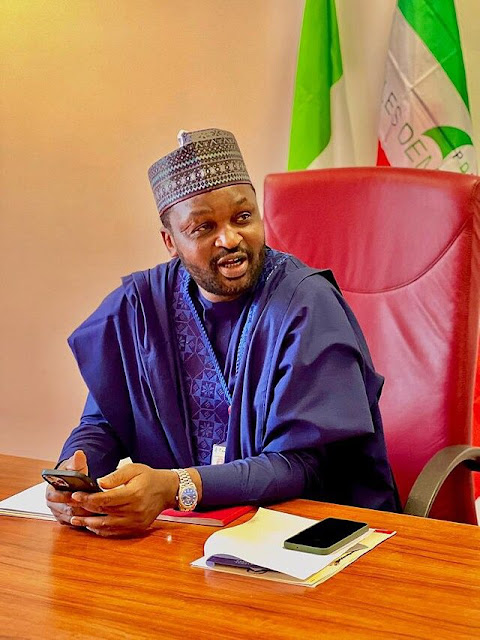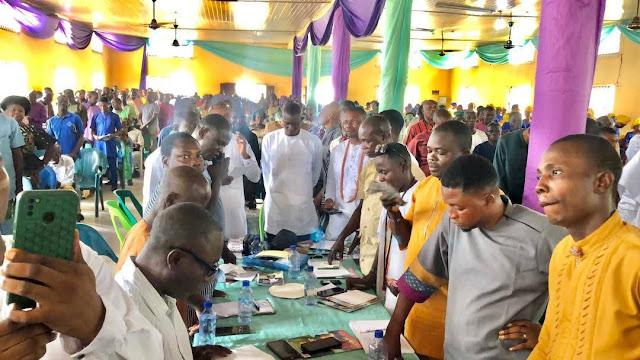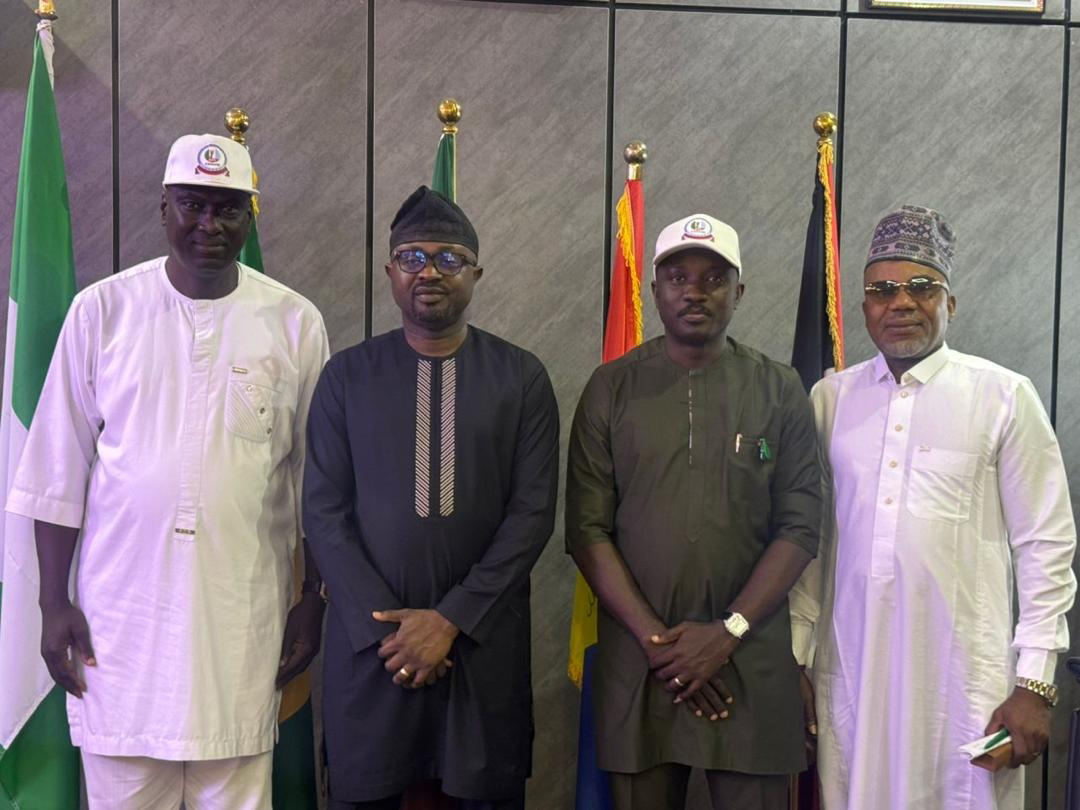Kaduna, Nigeria – Senator Lawal Adamu-Usman, representing Kaduna Central Senatorial District under the Peoples Democratic Party (PDP), has robustly defended his decision to petition the International Criminal Court (ICC) against Kaduna State Governor Uba Sani, asserting that the move is a critical step to safeguard Nigeria’s democracy and protect citizens’ rights. Speaking from Saudi Arabia, where he is observing the lesser Hajj, Adamu-Usman emphasized that the petition, filed on behalf of the PDP and its candidate in the August 16, 2025, by-election for Chikun/Kajuru Federal Constituency, is not a personal vendetta but a necessary action to address electoral malpractices and restore credibility to the democratic process.
The senator’s petition accuses Governor Sani and his administration of orchestrating vote-buying, harassment of opposition agents, and selective arrests during the by-election, allegations that have sparked a heated political controversy in Kaduna State. Adamu-Usman dismissed criticisms from groups claiming to represent Kaduna Central constituents, labeling their reactions as propaganda aimed at shielding the governor from accountability. In a counter-move, Governor Sani’s administration has filed a petition against the senator with the Kaduna State Police Command, signaling an escalating political feud with significant implications for Nigeria’s democratic landscape.
The controversy comes at a time of heightened political tension in Kaduna State, a key battleground in Nigeria’s North-West geopolitical zone, known for its diverse population and complex political dynamics. The ICC’s scheduled review of the petition on September 1, 2025, adds an international dimension to the dispute, raising questions about electoral integrity, democratic accountability, and the role of global institutions in Nigeria’s political processes. This article provides a comprehensive analysis of the petition, the by-election controversy, the responses from both sides, and the broader implications for Kaduna State and Nigeria’s democracy.
The ICC Petition: A Call for Accountability
Senator Lawal Adamu-Usman’s petition to the ICC is a bold and unprecedented move in Nigerian politics, reflecting the growing frustration with electoral irregularities and the perceived impunity of political actors. Speaking from Saudi Arabia, where he is performing the lesser Hajj, Adamu-Usman clarified that the petition was filed on behalf of the PDP and its candidate in the Chikun/Kajuru Federal Constituency by-election, which was held to fill a vacant seat in the House of Representatives. The senator stressed that the action was not driven by personal motives but by a commitment to protecting Nigeria’s democratic institutions and ensuring that citizens’ rights to free and fair elections are upheld.
“What happened during the by-election was a travesty — vote-buying, harassment of agents, and selective arrests. These are not fabrications; they were witnessed by ordinary citizens and documented by credible observers,” Adamu-Usman stated. He alleged that the election was marred by widespread malpractices, including the intimidation of PDP agents, unlawful arrests of opposition members, and inducements to influence voters. These allegations, he argued, undermine the credibility of the electoral process and threaten the survival of democracy in Nigeria.
The petition seeks four key reliefs from the ICC: an investigation into Governor Uba Sani’s conduct during the by-election, his possible arrest for alleged violations, measures to protect opposition figures from harassment, and steps to guarantee democratic participation in Nigeria. The ICC’s decision to schedule a review of the petition on September 1, 2025, indicates that the court is taking the allegations seriously, potentially setting a precedent for international scrutiny of Nigeria’s electoral processes.
Adamu-Usman’s decision to involve the ICC, a court established to prosecute individuals for international crimes such as genocide, war crimes, and crimes against humanity, is significant. While electoral malpractices are not typically within the ICC’s jurisdiction, the senator’s petition likely frames the alleged actions as part of a broader pattern of systematic violations that could constitute crimes against humanity, such as persecution or other inhumane acts. This approach reflects a growing trend among Nigerian opposition figures to seek international intervention in cases of perceived injustice, particularly in the absence of robust domestic mechanisms to address electoral misconduct.
The By-Election Controversy: Allegations of Malpractice
The Chikun/Kajuru Federal Constituency by-election, held on August 16, 2025, was necessitated by the vacancy of a House of Representatives seat, likely due to the death, resignation, or disqualification of the previous occupant. The election pitted the PDP against the All Progressives Congress (APC), the ruling party in Kaduna State under Governor Uba Sani. The constituency, which encompasses the Chikun and Kajuru Local Government Areas, is known for its diverse ethnic and religious composition, making it a politically sensitive area.
According to Adamu-Usman, the by-election was marred by significant irregularities that undermined its credibility. He cited instances of vote-buying, where voters were allegedly offered financial incentives to support APC candidates, and harassment of PDP agents, who were reportedly intimidated by security personnel and party loyalists. The senator also alleged that selective arrests of opposition members were carried out to suppress the PDP’s campaign efforts, creating an uneven playing field.
“These are not fabrications; they were witnessed by ordinary citizens and documented by credible observers,” Adamu-Usman said, pointing to reports from election monitors, civil society organizations, and media outlets that corroborated the allegations. Independent observers, including local and international groups, have often highlighted vote-buying and voter intimidation as persistent challenges in Nigerian elections, particularly in politically volatile regions like Kaduna.
The senator’s claims are part of a broader narrative of electoral misconduct in Nigeria, where allegations of rigging, violence, and manipulation have been a recurring issue since the return to democracy in 1999. The Independent National Electoral Commission (INEC), responsible for conducting elections, has faced criticism for its inability to fully address these challenges, often citing logistical constraints and interference by political actors. In the case of the Chikun/Kajuru by-election, the PDP’s decision to escalate the matter to the ICC reflects a lack of confidence in domestic institutions to deliver justice.
Governor Uba Sani’s Response: A Counter-Petition
In response to Senator Adamu-Usman’s petition, Governor Uba Sani’s administration has taken a defensive stance, dismissing the allegations as baseless and filing a counter-petition against the senator with the Kaduna State Police Command. Malam Ibrahim Musa, the governor’s Chief Press Secretary, confirmed the petition, stating that further steps would be taken pending the outcome of police investigations. The move suggests that the governor’s team views the ICC petition as a political maneuver aimed at tarnishing Sani’s reputation and undermining his administration’s legitimacy.
The counter-petition accuses Senator Adamu-Usman of making unfounded allegations and engaging in actions that could destabilize Kaduna State. By involving the police, the governor’s administration seeks to portray the senator’s petition as a domestic issue that should be resolved through Nigerian legal channels rather than international intervention. This approach aligns with the APC’s broader strategy to maintain control over Kaduna’s political narrative and deflect criticism from opposition parties.
Governor Sani, who assumed office in 2023, has prioritized security, infrastructure development, and economic empowerment in Kaduna State. His administration has been credited with efforts to address insecurity, particularly banditry and kidnapping, which have plagued the state for years. However, the political crisis sparked by the by-election controversy threatens to overshadow these achievements and escalate tensions between the APC and PDP in Kaduna.
Political Dynamics in Kaduna State
Kaduna State is one of Nigeria’s most politically significant states, with a diverse population and a history of ethnic and religious tensions. The state has been a battleground for the APC and PDP, with both parties vying for control of its political machinery. The APC, under Governor Uba Sani, has maintained dominance since 2015, building on the legacy of former Governor Nasir El-Rufai. However, the PDP, led by figures like Senator Adamu-Usman, remains a formidable opposition, particularly in areas like Chikun and Kajuru, where it enjoys significant support.
The by-election controversy reflects the broader political rivalry between the APC and PDP in Kaduna, which has been intensified by national political dynamics. The APC’s control of the federal government under President Bola Tinubu has strengthened its position in states like Kaduna, but the PDP’s resilience, particularly in the North-West, poses a challenge. The defection of high-profile figures to the APC in recent years, including former PDP members, has further fueled tensions, with the PDP accusing the ruling party of using state resources to suppress opposition.
Senator Adamu-Usman’s petition to the ICC is a strategic move to leverage international pressure to highlight the PDP’s grievances and challenge the APC’s dominance. By framing the by-election irregularities as a threat to Nigeria’s democracy, the senator aims to galvanize support from both domestic and international stakeholders, including civil society organizations, election observers, and foreign governments. However, the petition also risks escalating the political crisis in Kaduna, potentially deepening divisions and undermining efforts to promote unity and stability.
The Role of the ICC and International Implications
The ICC’s decision to review Senator Adamu-Usman’s petition on September 1, 2025, marks a significant development, as it brings an international dimension to Nigeria’s domestic political disputes. The ICC, based in The Hague, Netherlands, is tasked with prosecuting individuals for international crimes, but its jurisdiction over electoral malpractices is limited unless they are linked to broader crimes against humanity. The senator’s petition likely argues that the alleged actions in Kaduna constitute a systematic pattern of persecution or other inhumane acts, a threshold that the ICC will evaluate during its review.
The involvement of the ICC raises questions about the role of international institutions in addressing Nigeria’s electoral challenges. While the ICC’s intervention could draw global attention to issues of democratic accountability, it may also provoke backlash from the Nigerian government, which has historically resisted external scrutiny of its political processes. The APC, in particular, may view the petition as an attempt to undermine Nigeria’s sovereignty, potentially straining relations with international bodies.
The petition also highlights the growing trend of Nigerian politicians seeking international intervention in domestic disputes. In recent years, opposition parties have increasingly turned to global institutions like the ICC, the United Nations, and foreign governments to address issues such as electoral fraud, human rights abuses, and political persecution. This trend reflects a lack of trust in Nigeria’s judicial and electoral systems, which are often perceived as compromised by political interference.
Reactions and Criticisms
Senator Adamu-Usman dismissed criticisms from a group claiming to represent Kaduna Central constituents, describing their reaction as “propaganda designed to shield the governor from scrutiny.” He questioned why the governor’s supporters would oppose an investigation if they were confident in the integrity of the by-election. “If the governor’s supporters are proud of the elections, why are they afraid of scrutiny?” he asked, challenging the APC to embrace transparency and accountability.
The group’s criticism of the senator reflects the polarized nature of Kaduna’s political landscape, where allegations and counter-allegations are common. The APC’s decision to file a police petition against Adamu-Usman suggests a strategy to counter the ICC petition with domestic legal action, portraying the senator as a destabilizing force. This tit-for-tat approach risks escalating the political crisis, potentially leading to further unrest in Kaduna.
Civil society organizations and election observers have called for calm and urged both parties to prioritize dialogue and transparency. The Centre for Democracy and Development (CDD), a prominent Nigerian NGO, emphasized the need for INEC and security agencies to address allegations of electoral malpractice promptly to restore public confidence. International observers, including the European Union Election Observation Mission, have also expressed concern about the by-election, calling for an independent investigation into the allegations.
Socio-Economic Context: Challenges in Kaduna State
Kaduna State faces significant socio-economic challenges, including insecurity, unemployment, and inadequate infrastructure, which have shaped its political dynamics. The state has been plagued by banditry, kidnapping, and communal violence, particularly in rural areas like Chikun and Kajuru. Governor Sani’s administration has made efforts to address these issues, including deploying security forces and promoting community dialogue, but the challenges persist.
The by-election controversy risks diverting attention from these pressing issues, as political actors focus on consolidating power rather than addressing the needs of residents. The allegations of vote-buying and intimidation also highlight the socio-economic vulnerabilities of voters, who may be susceptible to inducements due to poverty and lack of opportunities. Addressing these root causes will be critical to strengthening democratic participation and ensuring free and fair elections.
Implications for Nigeria’s Democracy
The dispute between Senator Adamu-Usman and Governor Uba Sani has broader implications for Nigeria’s democracy. The allegations of electoral malpractice underscore the need for reforms to strengthen the independence of INEC, enhance security during elections, and address systemic issues like vote-buying. The involvement of the ICC, while controversial, highlights the growing demand for accountability and transparency in Nigeria’s electoral processes.
The controversy also reflects the challenges of managing political competition in a diverse and polarized country like Nigeria. Kaduna’s ethnic and religious diversity makes it a microcosm of Nigeria’s broader challenges, where political actors must navigate complex social dynamics to maintain stability. The PDP’s decision to escalate the matter to the ICC could inspire other opposition parties to adopt similar strategies, potentially increasing international scrutiny of Nigeria’s elections.
Looking Ahead: A Test for Kaduna and Nigeria
As the ICC prepares to review Senator Adamu-Usman’s petition on September 1, 2025, the political crisis in Kaduna State is set to intensify. The outcome of the review could have far-reaching consequences, not only for Kaduna but for Nigeria’s democratic institutions. A decision by the ICC to investigate the allegations would mark a significant escalation, potentially straining Nigeria’s relations with the court and drawing global attention to the country’s electoral challenges.
For Senator Adamu-Usman and the PDP, the petition is a high-stakes gamble aimed at holding the APC accountable and rallying support for the opposition. For Governor Sani and the APC, the counter-petition and defensive posture reflect a determination to protect their political dominance and deflect international scrutiny. The resolution of this dispute will depend on the ability of both sides to engage in dialogue, address the allegations transparently, and prioritize the interests of Kaduna’s residents.
In conclusion, Senator Lawal Adamu-Usman’s defense of his ICC petition against Governor Uba Sani underscores the deep-seated challenges facing Nigeria’s democracy, particularly in the realm of electoral integrity. The allegations of vote-buying, harassment, and selective arrests in the Chikun/Kajuru by-election highlight the need for systemic reforms to ensure free and fair elections. As Kaduna State navigates this political crisis, the actions of its leaders and the response of domestic and international institutions will shape the future of democracy in the state and beyond. The pursuit of accountability, transparency, and justice remains critical to safeguarding Nigeria’s democratic ideals and protecting the rights of its citizens.






